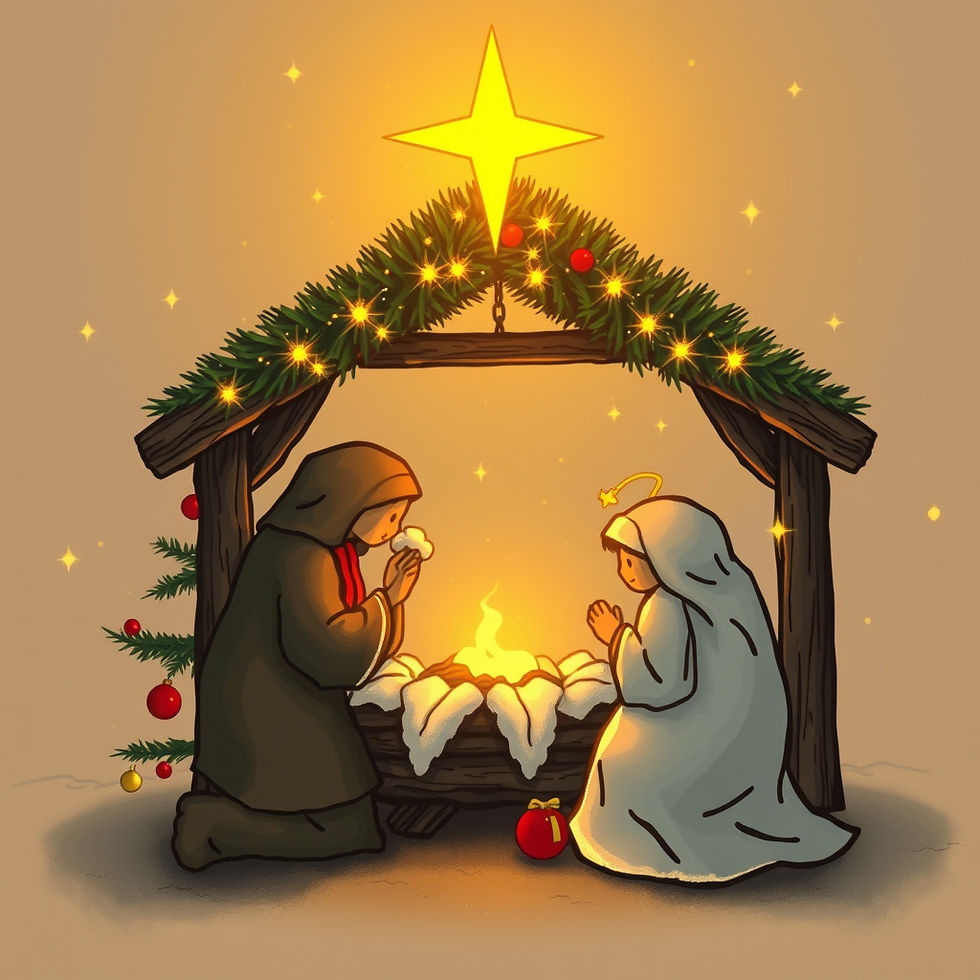Celebrating Our Priceless Freedom
- Eldon Peterson
- Jul 7, 2022
- 3 min read

In July we remember and celebrate the freedoms that we enjoy in our country. Most of us celebrate freedom that was gained for us by someone else’s. On the 4th of July we celebrate the United States’ independence that was gained through the Revolutionary War that ended in 1783.
We can measure the costs of war in monetary or economic terms, but we cannot forget the lives spent to purchase our freedom. Remembering the cost of our freedom allows us to be truly thankful. Just as this is true of our nation’s freedom, it is also true of the spiritual freedom that is ours in Christ.
Jesus told his followers that apart from him they will not be free. “You are truly my disciples if you remain faithful to my teachings. And you will know the truth, and the truth will set you free.” (John 8:31–32) We can wrestle with defining what it means to be free by inserting our own definition of what freedom looks like. We may define freedom as political freedom, social freedom or academic freedom. But in the end, the freedom that we really need is the freedom that Jesus offers: spiritual freedom.
Jesus’ followers struggled to understand what He meant, “But we are descendants of Abraham. We have never been slaves to anyone. What do you mean, ‘You will be set free’?” (John 8:33) What does Jesus mean? He explains using the image of slavery to describe the problem we face. Regardless of the freedoms that we have, apart from Christ, we remain enslaved to sin and lack spiritual freedom, freedom from sin and judgement.
Paul addresses this in Romans 6 saying, “We know that our old sinful selves were crucified with Christ so that sin might lose its power in our lives. We are no longer slaves to sin. For when we died with Christ we were set free from the power of sin.” (6–7). Paul declares a truth that we know intuitively. A slave cannot free themselves; they must depend upon another to set them free from their bondage.
Yet we may wonder if it is fair to describe ourselves as slaves to sin, or if our sin is really that big of a problem. We know we are guilty. We know that we fail to live up to our own standards, let alone God’s. We want to believe that we are good if we do mostly good, and yet we know that such reasoning is empty. No matter how distasteful we find our sin, if we’re honest, we see that it owns us.
Why are we slow to confess our need for a savior, for a redeemer. Partly because we do not want to appear needy – we want to do it our way. We know that the Bible tells us that Jesus came to set us free, but we find ourselves believing that it can’t be as easy as “just believing.” There must be something more that we must do to be free!
Of course there is something else; we must receive the free gift of forgiveness that Christ has purchased for us. Just as our freedoms in this country came at a cost, so did our salvation. Christ purchased our freedom by dying on the cross for us.
Paul tells us in Colossians 1 how this was done, “For he has rescued us from the kingdom of darkness and transferred us into the Kingdom of his dear Son, who purchased our freedom and forgave our sins.” (13–14) Lacking the power to set ourselves free from the bondage of sin by our own good works, we needed someone to purchase our freedom for us. Listen to how Paul explains it, “So Christ has truly set us free. Now make sure that you stay free, and don’t get tied up again in slavery to the law.” (Galatians 5:1)
Do you long for spiritual freedom? Then remember, “So if the Son sets you free, you really will be free.” (John 8:36) Real freedom, the freedom we need, awaits for us in Christ. How do we find it? “If you openly declare that Jesus is Lord and believe in your heart that God raised him from the dead, you will be saved. For it is by believing in your heart that you are made right with God, and it is by openly declaring your faith that you are saved.” (Romans 10:9–10) The freedom we need and celebrate was purchased for us in Christ. You simply must believe.




Comments